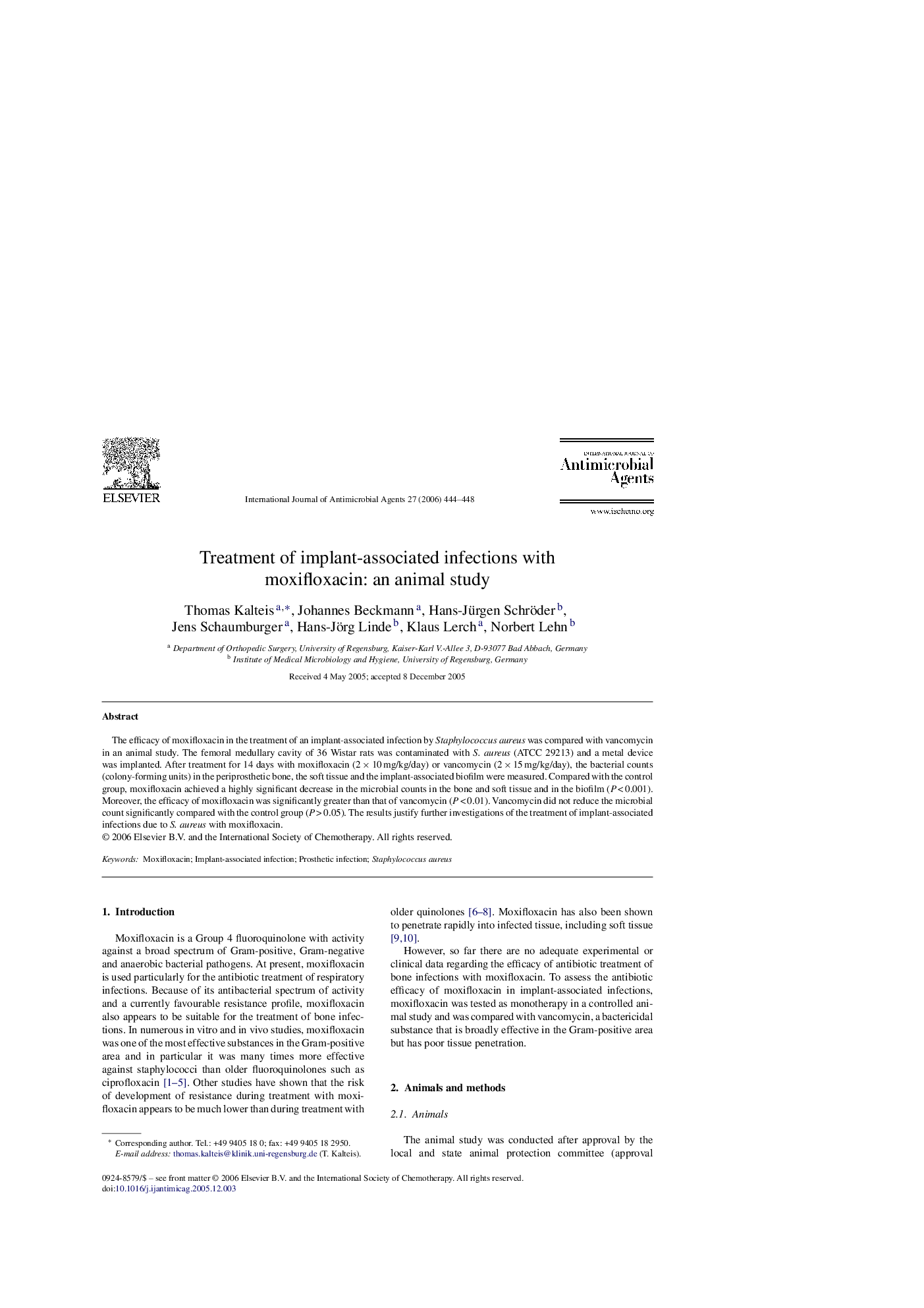| Article ID | Journal | Published Year | Pages | File Type |
|---|---|---|---|---|
| 3360818 | International Journal of Antimicrobial Agents | 2006 | 5 Pages |
The efficacy of moxifloxacin in the treatment of an implant-associated infection by Staphylococcus aureus was compared with vancomycin in an animal study. The femoral medullary cavity of 36 Wistar rats was contaminated with S. aureus (ATCC 29213) and a metal device was implanted. After treatment for 14 days with moxifloxacin (2 × 10 mg/kg/day) or vancomycin (2 × 15 mg/kg/day), the bacterial counts (colony-forming units) in the periprosthetic bone, the soft tissue and the implant-associated biofilm were measured. Compared with the control group, moxifloxacin achieved a highly significant decrease in the microbial counts in the bone and soft tissue and in the biofilm (P < 0.001). Moreover, the efficacy of moxifloxacin was significantly greater than that of vancomycin (P < 0.01). Vancomycin did not reduce the microbial count significantly compared with the control group (P > 0.05). The results justify further investigations of the treatment of implant-associated infections due to S. aureus with moxifloxacin.
